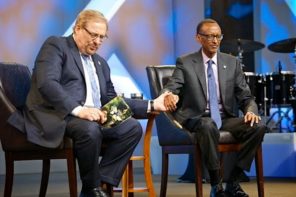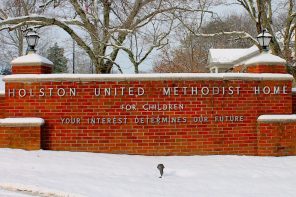Lately, evangelical churches and other religious organizations have been encouraging their followers to adopt or to become foster parents. This “orphan care,” as they call it, is meant to be a reflection of God’s saving work. The theory goes that as God the Father has adopted us, so we should adopt others.
As an adoptive parent myself, I’m all for that, but at least some of these groups don’t do nearly enough to prepare people for the realities of adoption. It’s all encouragement to get out there and bring children into your home with little, if any, mention of what might result. Children come with baggage: there’s traumatic history, medical issues, psychiatric problems, cultural differences, and so on. As if all that weren’t bad enough, as it happens most of the world’s “orphans” aren’t really orphans at all. Rather, they’re children whose families can no longer provide for their needs. That can become quite a problem when you’re adopting from overseas. Or, as in our case, what it means is that the kids really have two families. As messy and as difficult as it is sometimes, we have come to accept that their biological mother and grandmother will always be a part of their lives, and therefore always a part of our lives.
I think you can see what I’m getting at here. Adoption, though a positive thing, is not something to be hurried into without careful consideration. That’s been my main beef against organizations like Rick Warren’s Saddleback Church. Saddleback has been a leader in the orphan care movement—they describe it as one of their “signature issues”—but their “Get Informed” page on domestic adoption consists of a downloadable brochure on “steps to adoption,” a guide to tax implications of adoption, and links to agencies working in Rwanda. Last year I asked Warren’s PR firm for comment on how his congregation prepares adoptive families and never heard back.
To give credit where it’s due, though, some groups at least try to prepare parents. In an interview last September, Kelly Rosati, Vice President of Community Relations for Focus on the Family, told me that Focus acts as a cheerleader for orphan care, but is also careful to distribute “counting the costs” information to those thinking about adoption. When asked what Focus does to prepare adoptive families for issues like reactive attachment disorder or trauma, Rosati pointed to a publication called “Wrapping Around Adoptive Families” — a pamphlet “to give to church, family, friends — people who are trying to be helpful, but don’t necessarily understand.” Focus also helps connect parents to resources on dealing with trauma and offers a free hour of counseling to adoptive families.
When it comes to other sources of conflict, such as foster children who have a different sexual or religious identity than their host family, Focus adroitly sidesteps the issue. Foster parents, Rosati tells me, are trained by state-approved social services agencies, who are required to meet the local criteria for addressing diversity.
More recently, my wife pointed me to a link announcing the Christian Alliance for Orphans’ Summit VII, which promises “a national hub for Christians committed to adoption, foster care and global orphan initiatives rooted in the local church.” The conference seems like something of a mixed bag. On the one hand, it features big names like Karen Purvis, a leading expert on attachment issues in adoptive families, talking about the “Practical Realities of Parenting Children from Hard Places.” Other sessions include “Straight Talk about Disruption” and “Supporting Families in the Post-Placement Journey.” I also appreciate the last article in the Alliance’s Statement of Faith: “We believe in the spiritual unity of believers in our Lord Jesus Christ, with equality across racial, gender, and class differences.”
On the other hand, a statement of faith for an alliance to promote adoption? Even if it is meant to be a church-based movement, this strikes me as rather odd, as does the first article in that statement: “We believe the Bible to be the inspired, the only infallible, authoritative Word of God.” What that has to do with adoption is beyond me.
Still, the bottom line is that this organization is doing the right thing: it’s focused on realistic training and support for parents who have taken on children with major issues, and on building communities of support for those families in the local church. That my wife—who is about as much of an evangelical as Sarah Palin is a shy, retiring Democrat—wants to attend their conference tells you they must be on to something. More like this, please.




